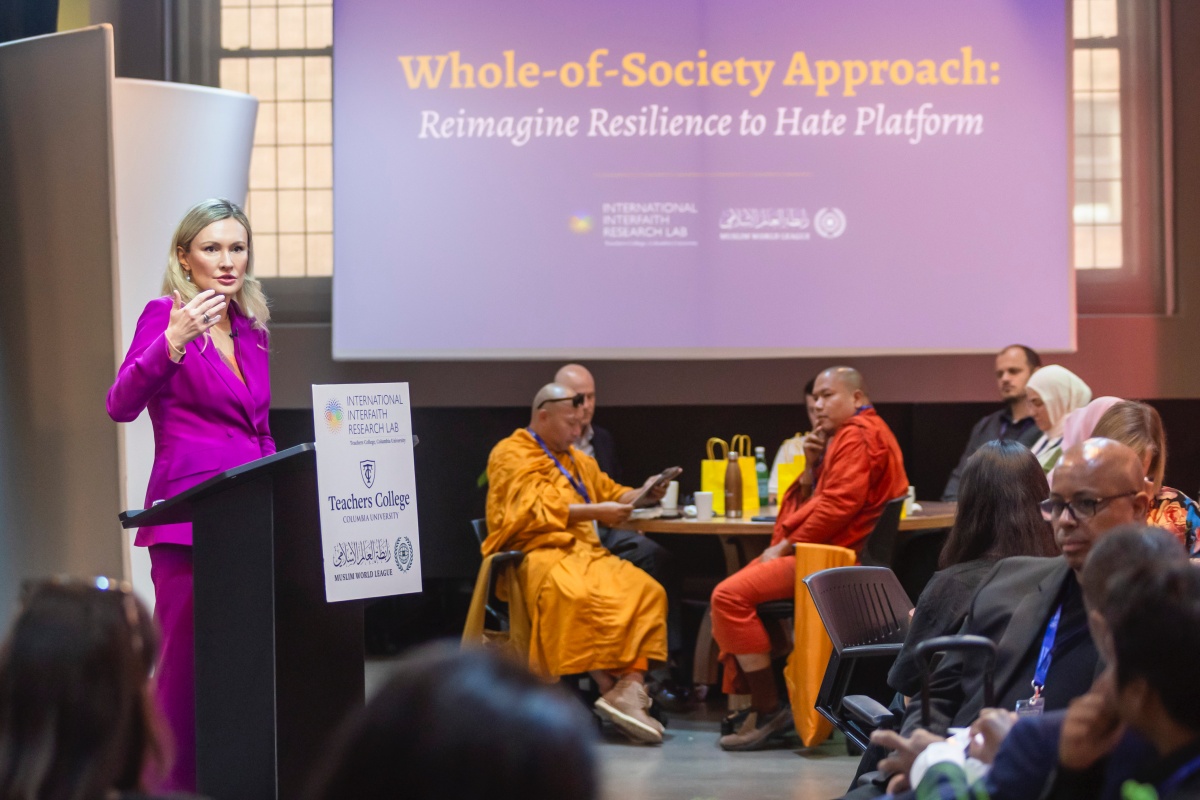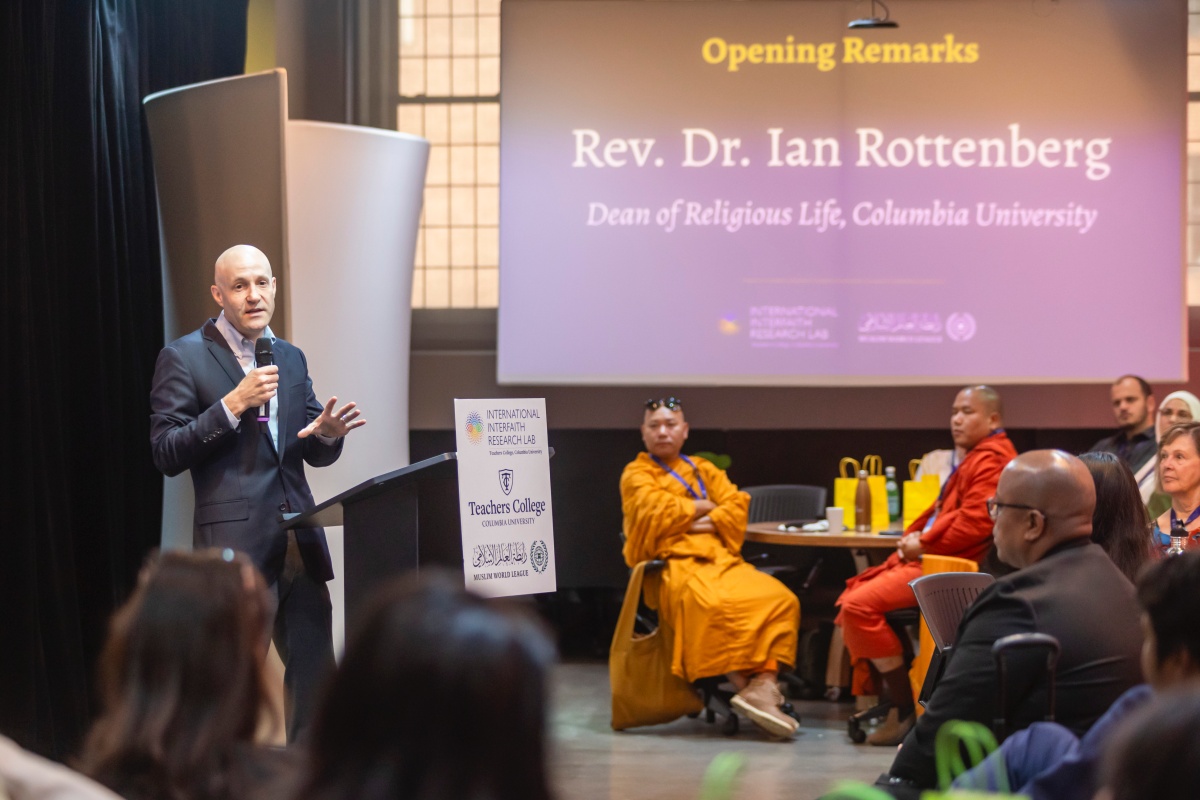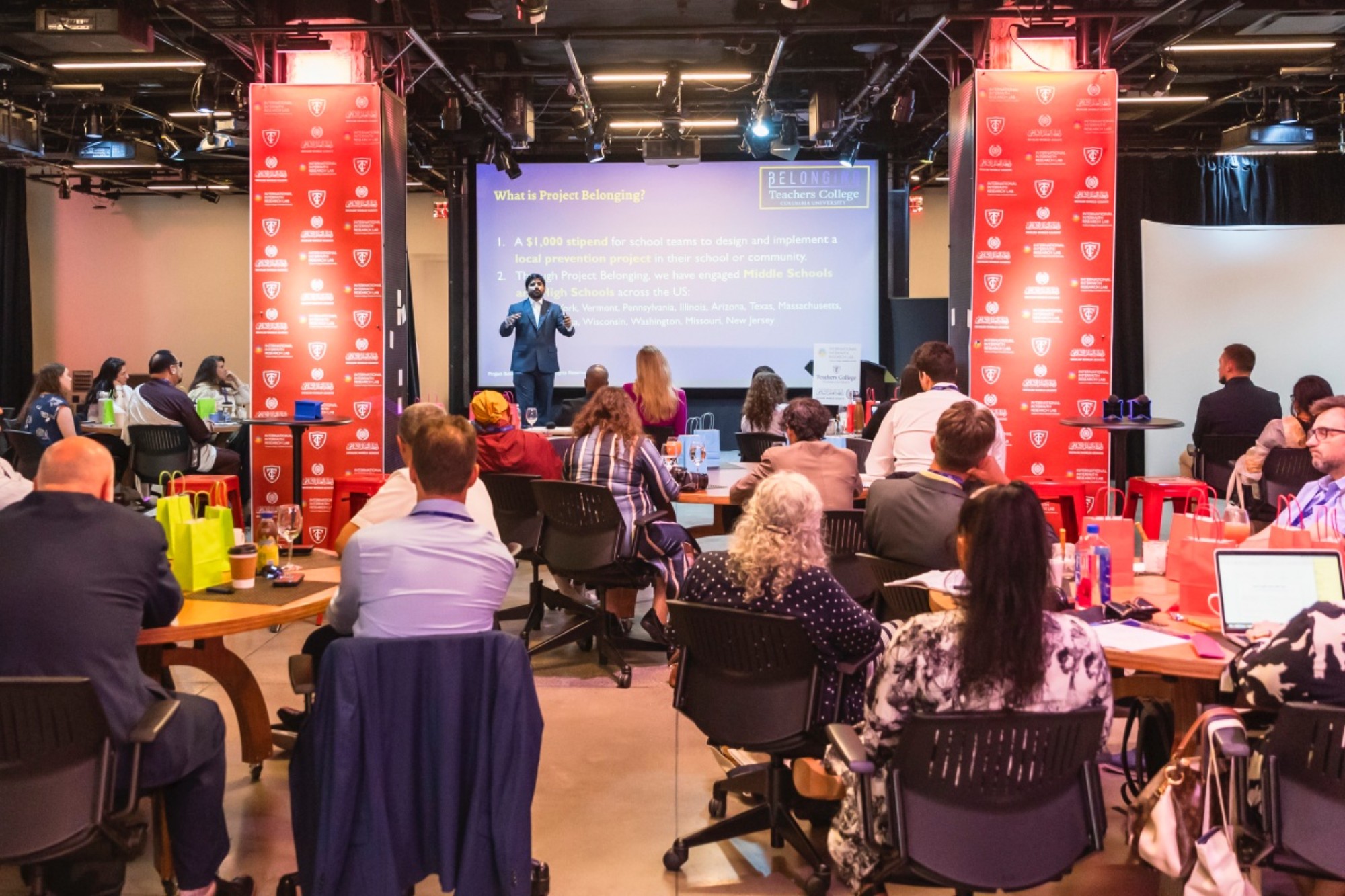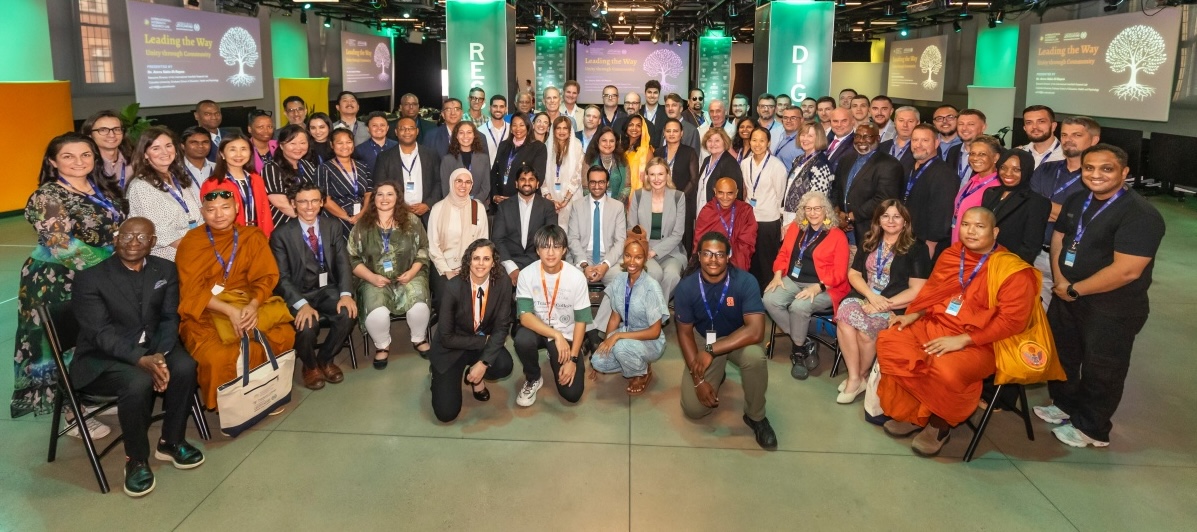To support tolerance and inclusion, 80 interfaith leaders will apply groundbreaking insights from TC’s International Interfaith Research Lab at higher education institutions, non-profits, and international organizations across the globe. The innovative training — the most recent effort from the Interfaith Lab to prevent rising hate and extremism — leverages exclusive findings related to interpersonal connection to provide participants with evidence-based tools to cultivate healthier communities.
“Over the past year, we have witnessed a troubling rise in polarization, dehumanization, and narratives of supremacy. As a result, the demand for our engagement with schools, faith leaders, and students has reached unprecedented levels” says TC’s Amra Sabic-El-Rayess, Executive Director of the Interfaith Lab and Associate Professor of Practice. “In a time when people are so overcome with fear and division, we at TC are building this growing community committed to violence prevention.”
The 15-hour training convened faith leaders from institutions across 21 states to help participants “more meaningfully engage in hate prevention.” Strategies like social connectedness, storytelling, and a reimagined idea of collective resilience served to “build their confidence and capacity” for effective community building.

Amra Sabic-El-Rayess, Executive Director of the Interfaith Lab and Associate Professor of Practice. (Photo courtesy of the International Interfaith Research Lab)
“Making the effort to step outside your own perspective and recognize our shared humanity is undoubtedly challenging, especially during difficult times,” says Sabic-El-Rayess, whose academic interest in hate prevention is informed by her own harrowing survival of the Bosnian genocide, which she has written about in her award-winning memoirs: The Cat I Never Named: A True Story of Love, War, and Survival, and Three Summers. “By the end of the training, everyone in the room realized they could find that inspiration to connect across common human values of respect, dignity, care, and empathy for one another.”
Such attitudinal shifts in faith leaders (and educators and students) as they develop awareness of both protective and risk factors for hate and hate-fueled violence can help mitigate intolerance and reduce our individual sense of displacement in shared spaces, according to Sabic-El-Rayess’ scholarship. By telling one’s own story and encouraging others to do the same, leaders can help cultivate social connectedness among people of different backgrounds that can help reduce bias, and advance belonging.
Identity is a story, not a category.
This work is not easy, and doesn’t always have a clear roadmap. Rather, faith leaders can build upon this foundation in their own lives and communities as they navigate the complexities of today’s world.
“Leaders know the needs of their communities best…We’re offering tools and frameworks, but we’re not going to tell you exactly what to do because that’s not empowering,” explains Vik Joshi, a TC doctoral student in the Philosophy and Education program and a Special Advisor at the Interfaith Lab. “Our purpose is to build a genuine connection and partnership, so we can think together about what your community needs.”
Supporting a diverse community when its members are contending with painful circumstances across the world is no easy feat. In fact, the challenges at universities in many ways mirror the truth that “our world is complex and challenging at this moment,” says Rev. Ian Rottenberg, Dean of Religious Life at Columbia University, who delivered remarks at the Interfaith Lab’s training.

Rev. Ian Rottenberg, Dean of Religious Life at Columbia University, presents in Smith Learning Theater. (Photo courtesy of the International Interfaith Research Lab)
The role of faith leaders is to do what faith leaders have done throughout the millennia, which is to remind us of the importance of being good neighbors to one another.
“The role of faith leaders is to do what faith leaders have done throughout the millennia, which is to remind us of the importance of being good neighbors to one another,” explains Rottenberg, who is passionate about multi-faith dialogue. “We can have differences of opinion and always will, but the fractures in a community and the traumas we cause one another are failures to live up to our relational responsibilities to one another.”
More than 2,700 miles away, Dean Kazi Joshua considers how to apply the Interfaith Lab’s teachings and research at Whitman College in Walla Walla, Wash.
“You have the ability despite whatever divide there might be to sit down and talk together…That does not happen by itself,” says Joshua, who serves as Vice President for Student Affairs. “I’m there to be present for students as they thrive, as they suffer, as they struggle…I believe that the connection and relationship between students creates both empathy, solidarity and common action in one direction, and that is what my hope is.”

Vik Joshi, a TC doctoral student in the Philosophy and Education program and a Special Advisor at the Interfaith Lab, addresses participants in the Smith Learning Theater at Teachers College. (Photo courtesy of the International Interfaith Research Lab)
The connection and relationship between students creates both empathy, solidarity and common action in one direction, and that is what my hope is.
Faith leaders who participated in the training will remain in contact, now able to lean on one another for support and exchange. Meanwhile, the Interfaith Lab will continue its training of faith leaders, students, and educators nationwide and globally — working to establish sustainable partnerships and create a lasting impact through ongoing research that seeks to advance pedagogies and practices in hate and targeted violence prevention.
In the two short years since the Lab officially launched in 2022, Sabic-El-Rayess and her team of graduate students have advanced anti-hate education throughout a robust international learning community, but the work remains personal.
For Joshi, who plays an integral role in the Interfaith Lab, Sabic-El-Rayess’ willingness to tell her own story — a demonstration of the Lab’s philosophy of strength through vulnerability — has been foundational to providing frameworks for others.
“Amra’s memoir has opened so many doors,” says Joshi. “I’ve seen the transformative power of education. It humanizes people, and dignifies them. It gives them a sense of community.”
